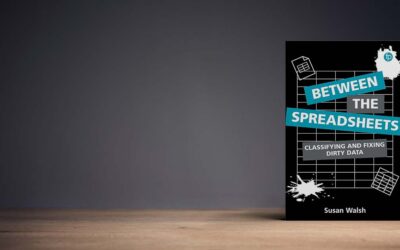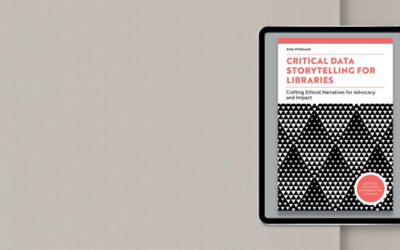Interview with the Author: Dr. Latasha Holt on Revisiting John Dewey
Lauren Hays
Libraries of all kinds are part of the education system. Because of that, I believe it is important for all librarians to stay current on conversations happening in K-12 and higher education.
Special librarians benefit when they know what experiences new employees bring to their work, and the experiences they had in their learning journey. Therefore, I want to share an interview with Latasha Holt, Ph.D, the author of Revisiting John Dewey: Applying What He Said 100 Years Ago to Today’s Need. Her book “…builds on information Dewey shared regarding the basic educational necessities and compares his findings to what is really happening in today’s schools.”
Additionally, Dr. Holt’s emphasis on community will be recognizable to librarians who frequently discuss the communities they serve. Learning about how other educators reach their communities can give us, as librarians, ideas for how to connect and reach our communities.
Further, thinking about positive ways to connect education and politics with libraries can help build support for all.
My interview with Dr. Holt is below.
Lauren Hays: Please introduce yourself to our readers.
Latasha Holt, Ph.D.: I am Latasha Holt. I am an assistant professor of curriculum and instruction at the University of Louisiana at Lafayette. I’m also the assessment coordinator for the College of Education & Human Development. I live in Louisiana, but I am originally from Arkansas.
Lauren Hays: Briefly summarize Revisiting John Dewey: Applying What He Said 100 Years Ago to Today’s Need.
Latasha Holt, Ph.D.: Revisiting John Dewey: Applying What He Said 100 Years Ago to Today’s Need is a book that I really felt a calling to write. The book is devoted to educational change. A big theme of the book is a call to action with teachers, parents, students, citizens, politicians…everyone. The book emphasizes that it will take all of us to make a change, and that everyone has a job in our democracy. The book also reminds readers that education is key to a bright future. The book really holds people accountable and makes sense of some basic ways we can improve.
With an emphasis on how everyone needs to be involved in education, the book challenges readers to revisit the foundational issues and not continue accepting things that are not best for our students, our schools, and our community.
The book has six chapters that each dive into the critical, foundational elements that John Dewey shared over a hundred years ago. The foundational topics are all shared through the lens of living in today’s world.
Lauren Hays: Why did you decide to write this book?
Latasha Holt, Ph.D.: I believe that education is broken, and I really felt that after the pandemic, the brokenness has been magnified. Often, we hear, oh, it’s the new generation that is the issue, or things are just not the way they used to be in the world…but I don’t think that is necessarily the case. I think we have lost our sense of purpose.
Deciding to write this book was a way to bring back Dewey’s focus of school and the community being one. Community is a big piece of what John Dewey advocated. Additionally, Dewey said that we had to be careful to keep children at the center of all we do. He cautioned us to think about politics and schools, and about how they are connected. He warned that when politics get involved in school decisions, things can be problematic. Dewey also emphasized that we need to support teachers. All these foundational ideas are very much what we are missing in today’s world.
Lauren Hays: How do you see this book influencing what educators do today?
Latasha Holt, Ph.D.: The book brings a new perspective to support the way we think about the school and relationships that we have with key things such as policy, curriculum, pedagogy, and the future needs of democracy.
One example in the book is a challenge to politicians to reflect on whom they visit with regarding educational needs. There is a call for political leaders to begin speaking with teachers more frequently than they do with lobbyists…and a challenge for elected leaders to serve regularly in the classroom.
Lauren Hays: How do you see this book affecting the work librarians do today?
Latasha Holt, Ph.D.: Librarians have a valuable role in documenting, sharing, and collecting knowledge that lasts over time. I think it is important that we honor librarians, and the impact of their work that serves from generation to generation.
One impact I hope this book has on the work librarians do, is that librarians are sparked to resurface some foundational education books that society can learn a lot from. Often, we are busy looking for the next big thing, but it might just be that what we need is foundational work that has been there all along.
Lauren Hays: For someone new to learning about John Dewey’s work, where do you suggest they start with their reading?
Latasha Holt, Ph.D.:
- Democracy and Education
- How We Think
- Moral Principles in Education
Even though these books are decades old, they all stress a need for the basics and promote community, family, and life-long learning.
Lauren Hays: Is there anything else you would like to share?
Latasha Holt, Ph.D.: My hope is that this book gets all members of society brainstorming ways they can be a part of the solution for educational change. So many times, we hear, “Oh, that’s not my problem”, but I respectfully disagree. We all live together in this world, and we’re each connected. Therefore, we all need to be involved. I really hope everyone can see their role in our democracy in the book.
Lauren Hays
Dr. Lauren Hays is an Assistant Professor of Instructional Technology at the University of Central Missouri, and a frequent presenter and interviewer on topics related to libraries and librarianship. Please read Lauren’s other posts relevant to special librarians. Take a look at Lucidea’s powerful integrated library systems, SydneyEnterprise, and GeniePlus, used daily by innovative special librarians in libraries of all types, sizes and budgets.
Never miss another post. Subscribe today!
Similar Posts
End-of-Calendar-Year Reflections for School Librarians
The end of the calendar year offers school librarians a chance to reflect on what’s working, make thoughtful adjustments, and plan for the year ahead.
Library Instruction: Learning Styles Are Out, Evidence-Based Practices Are In
For instructors and educators of all types, it’s vital to realize that evidence-based practices are more effective than catering to the myth of learning styles.
Interview with Susan Walsh:
Dirty Data, AI, and the 2nd Edition of “Between the Spreadsheets”
Author Susan Walsh discusses the new edition of “Between the Spreadsheets,” sharing insights on fixing dirty data, AI’s impact, and her COAT framework.
Interview with the Author:
Dr. Kate McDowell on Storytelling for Libraries
Dr. Kate McDowell shares how data storytelling helps libraries advocate, counter misinformation, and build trust for future generations.




Leave a Comment
Comments are reviewed and must adhere to our comments policy.
0 Comments